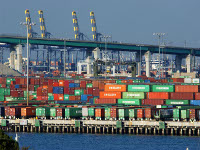Registration
You will receive an email confirming your registration.
IMGXYZ2353IMGZYXWhile the worst of the financial crisis may be over, the latest edition of the World Bank’s flagship report, the Global Economic Prospects, concludes that the global recovery is fragile and the fallout from the crisis will change the landscape for finance and growth over the next ten years.
The authors of the report warn that, despite the return to positive growth, it will take several years before economies recoup the losses already endured. Over the next five to ten years, increased risk aversion, a more prudent regulatory stance, and the need to curb some of the riskier lending practices from the boom period preceding the crisis can be expected to result in scarcer, more expensive capital for developing countries.
At an event hosted by the World Bank, the report’s authors argued that developing countries can and should reduce domestic borrowing costs and promote local capital markets by expanding regional financial centers and improving competition and regulation in local banking sectors. Carnegie’s Uri Dadush was among the panelists invited to attend and critique the report and its findings.
Developing Countries
Andrew Burns, the lead author of the report, focused primarily on the impact of the recent global economic crisis on developing countries. Developing countries weathered the crisis far better than many experts had expected, and ultimately better even than developed countries did:
- Investment: Developing countries benefitted from the absence of developed nations in international markets. They were able to borrow more money, under better terms, which they invested, therefore boosting their growth.
- Trade: Despite the crisis, developing countries have reached a level of trade almost equivalent to what they would have reached had there not been a crisis. Developed countries, on the other hand, still place far below initial expectations. Burns attributed this success to the fact that developing countries were able to trade between one another, and did not depend solely on high-income countries to import their products.
However, despite these positive developments, Burns cautioned against over-optimism:
- Fiscal Controls: Markets are going to demand tighter financial controls, and developing countries are going to need to strengthen their domestic financial markets accordingly.
- Output Gaps: Overall output gaps remain high and will continue to grow in the years to come.
In his concluding remarks, Burns highlighted three major issues:
- Weak Recovery: Recovery will be weak, but growth will nevertheless be stronger than during the 1990s, 1980s and 1970s – so inroads against poverty will continue.
- A Natural Experiment: The boom was a natural experiment that proved that developing countries can support even stronger growth rates without generating inflation or macroeconomic imbalance.
- Borrowing Costs: Although a tightening of international conditions is likely, policy can more than compensate in the long-run by reducing local borrowing costs.
Global Imbalances and Exchange Rate Volatility
István Székely, director for Economic Studies and Research at the Directorate General for Economic and Financial Affairs in the European Commission, felt that the report does not devote sufficient attention to two significant issues: global imbalances and exchange rate volatility. He suggested that the potential for currency volatility and currency misalignments in developing countries requires a more candid discussion, in order to identify key risks and possible measures to strengthen financial stability in developing countries.
The issue of currency volatility, or rather its lack in Europe, was also raised by Carnegie’s Uri Dadush. Dadush explained that Europe with its single currency and fiscal imbalances has lost its competitive edge to China, for example. He explained that Europe was unable to help itself out of the crisis, and owes much to China, whose domestic demand stimulated international growth.
Greece, Latvia and Argentina
Dadush pointed out that growth in Asia did not help alleviate the situation in Greece. Due to a loss of competitiveness, and the inability to control its own monetary policy and therefore adjust its exchange rate, Greece now finds itself in a far worse state than either Argentina or Latvia, who experienced similar economic crises in the past.
Dadush highlighted new risks that are likely to emerge:
- Fiscal: A deterioration of the fiscal situation in industrial countries.
- Imbalances: Growing imbalances between European countries.
- Social Unrest: An inability of European policy makers to strengthen their policies for fear of the social unrest unpopular policies might cause.
Retail Banking
Nicolas Jeanmart, head of Banking Supervision and Economic Affairs at the World Savings Bank, observed that domestic retail banking has remained stable in the past several years, and suggested that it should be further developed in order to bring about a quicker end to the crisis. He highlighted two principle areas economists and policy makers should focus on to achieve this goal:
- Savings: Focus on the mobilization of savings. Micro-credits are a valid solution only if they are coupled with the micro-savings.
- Stability: Provide the stability factor through:
- Product control.
- Responding to people’s needs, and creating products according to demand.
- New technologies.
- Developing a savings culture and providing financial education.
Jeanmart also highlighted changes that need to happen on the regulatory front to make the banking sector safer and stronger. Such changes include:
- Correcting weaknesses in financial systems made visible by the crisis.
- Providing more down-to-earth and accurate ideas on how to remedy the current crisis situation.
- Calibrating the remedy measures properly.
- Reacting in a timely fashion and introducing the above changes at the right point of time.
Protectionism
Lionel Victor October, the Economic and Trade attaché at the South Africa Embassy to the EU, explained that the transmission mechanism for growth in developing countries lies in rising commodity prices and increased demand for their export products. On the basis of that assessment, he issued two warnings:
- Protectionism: Probably the biggest danger currently facing South Africa and other developing nations is protectionism.
- Imbalances: Talk of global imbalances should not be a cover for protectionism.
